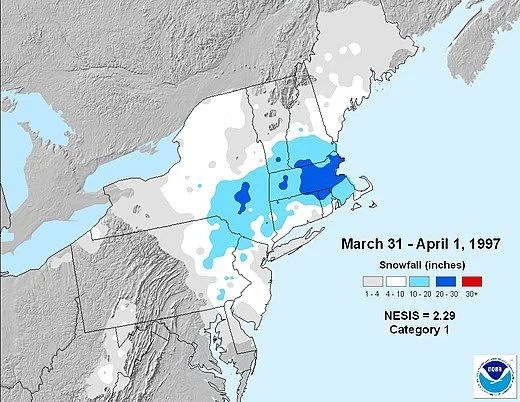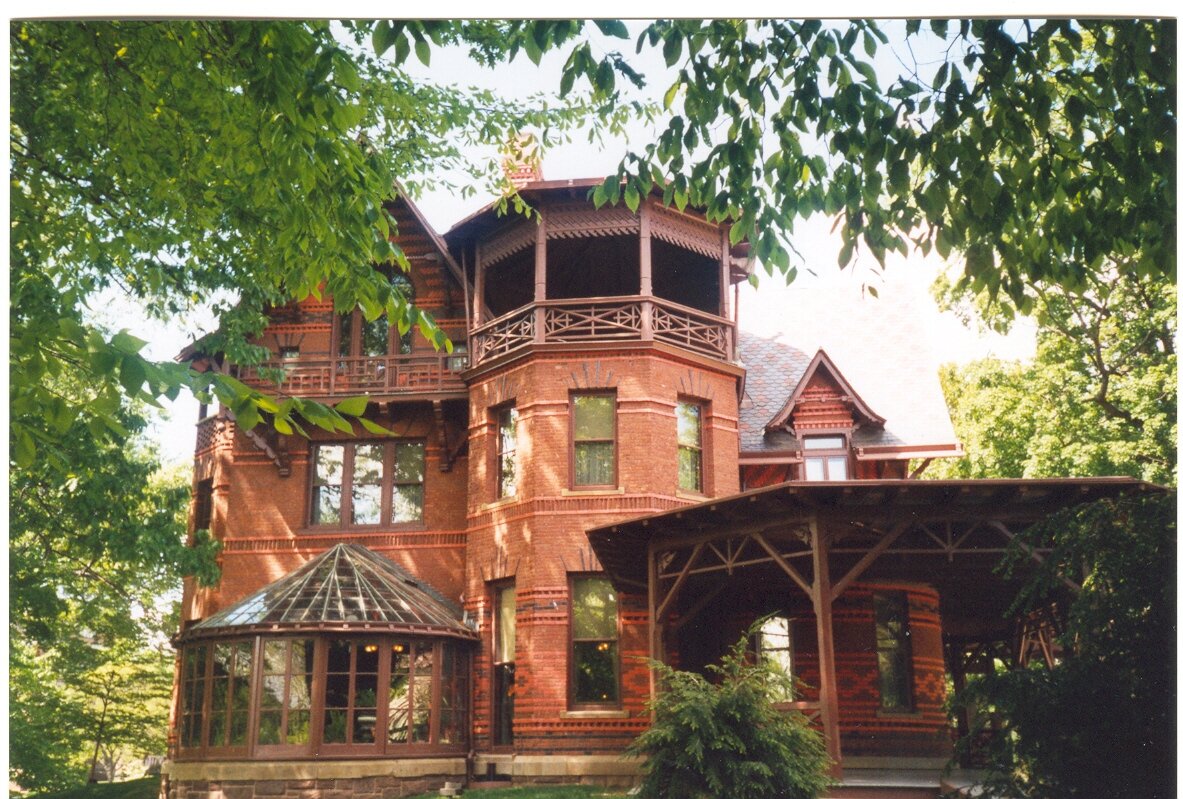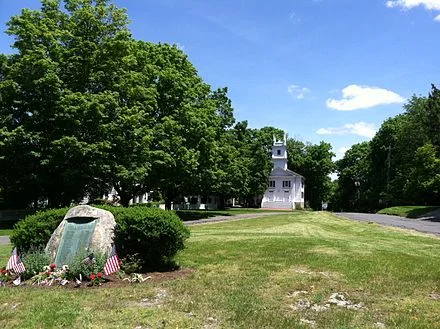
‘136 weathers in 24 hours’
The “April Fool’s Snowstorm’’ of 1997
“There is a sumptuous variety about the New England weather that compels the stranger's admiration — and regret. The weather is always doing something there; always attending strictly to business; always getting up new designs and trying them on people to see how they will go. But it gets through more business in spring than in any other season. In the spring I have counted one hundred and thirty-six different kinds of weather inside of twenty-four hours.’’
— Mark Twain (1835-1910), in his “New England Weather” speech to the New England Society on Dec. 22, 1876. The native of Missouri spent much of his adult life at his grand house in Hartford and spent his last two years at his house in Redding, Conn.
If you’re not partly a coward you’re not brave
— Photo by Makemake
The Mark Twain House, now a museum, in Hartford, Conn., where he lived in 1874-1891. He then lived abroad and in New York City before spending his last years in Redding, Conn., in the grand house below, which burned down in 1923.
“Courage is resistance to fear, mastery of fear-not absence of fear. Except a creature be part coward it is not a compliment to say it is brave; it is merely a loose misapplication of the word. Consider the flea! - -Incomparably the bravest of all the creatures of God, if ignorance of fear were courage. Whether you are asleep or awake he will attack you, caring nothing for the fact that in bulk and strength you are to him as are the massed armies of the earth to a sucking child; he lives both day and night and all days and nights in the very lap of peril and the immediate presence of death, and yet is no more afraid than is the man who walks the streets of a city that was threatened by an earthquake ten centuries before. When we speak of Clive, Nelson, and Putnam as men who ‘didn't know what fear was,’ we ought always to add the flea-and put him at the head of the procession.”
— Mark Twain, in Pudd’nhead Wilson (1893)
Slow it down
February, from the ‘‘Très riches heures du Duc de Berry.’’
“February... Now more than ever one must remind oneself that it is wasteful folly to wish that time would pass, or - as the puritanical old saying used to have it - to kill time until it kills you.’’
— Joseph Wood Krutch (1893-1970), a naturalist, scholar and writer who lived in the semi-countryside of Redding, Conn., before moving to Arizona. He famously wrote about the song of the spring peepers as a sound of spring coming on, and so of hope. Mark Twain also lived in Redding.
The center of Redding, Conn.
A spring peeper.
“Mother Bear and Cubs,’’ in Huntington State Park, Redding.







